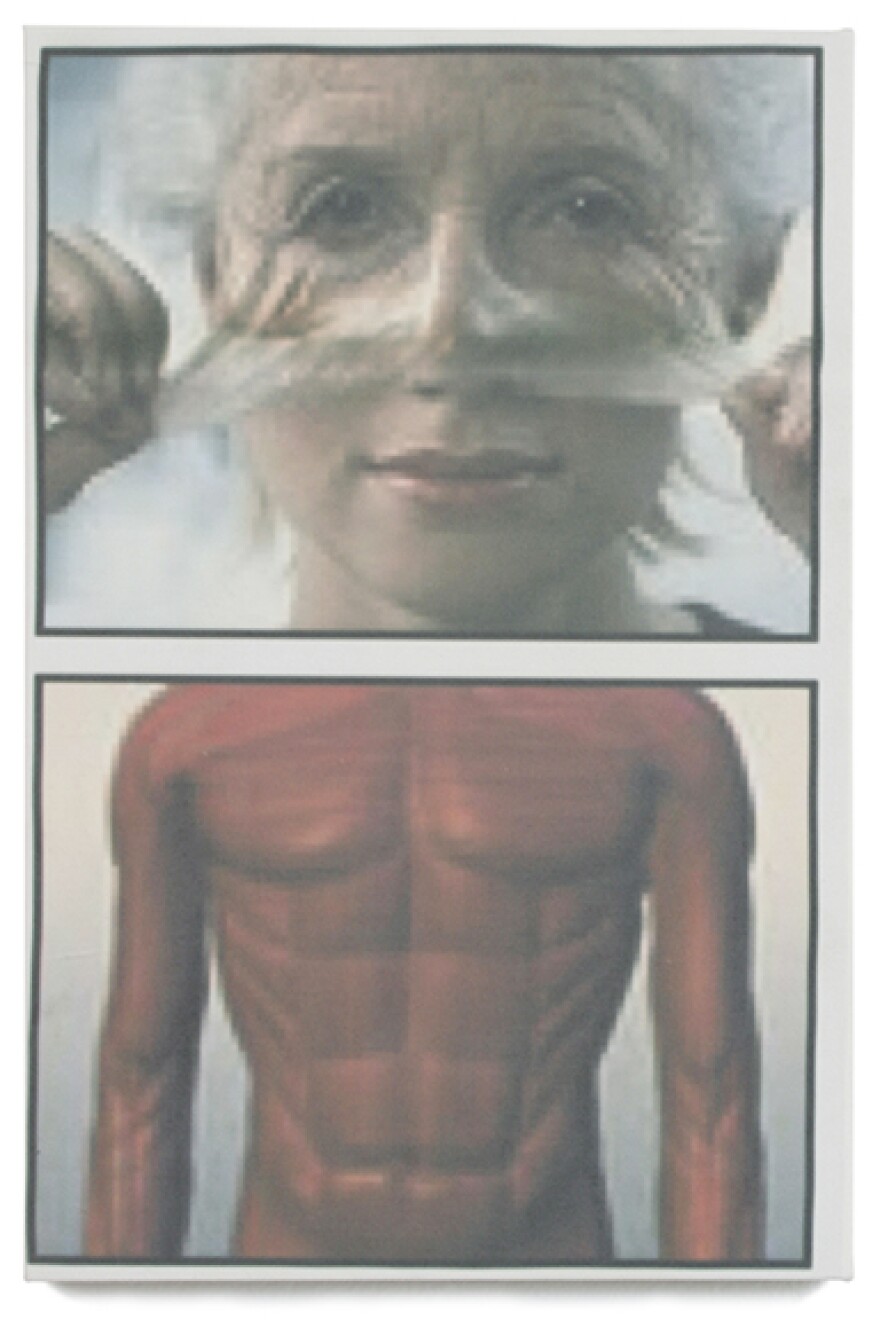Michigan artist Jeffrey Evergreen has never been one to leave his pictures alone. He likes to layer images and distort them until they’re nearly unrecognizable, or blow them up to huge sizes. You can see the results of that work in his new exhibit, called “Mind Your Memes,” which premieres tonight at the Kalamazoo Book Arts Center.
When you first look at Evergreen’s work, the most surprising thing is how familiar it can feel. On his huge canvases, you’ll see images you swear you’ve spotted before: on a book, a billboard, or a website. Evergreen says that’s the point.
“They’re all some form of collage, in one way or another," Evergreen says. "I don’t think that we should take the world at sort of face, advertised value. I think we should develop our own relationship with images and think about them in a fairly critical way.”
Evergreen takes these images, then weaves and distorts them together until they’re completely different. It’s something that started with a few beer boxes from Evergreen’s great-grandfather. He would take them, cut them up into strips and weave them together into placemat-sized pieces, with words and symbols playing off each other to create something new.
But soon, he wanted something bigger. Way bigger. Like billboard-sized. So he went to a billboard company and asked: do you have any extras?

“And the receptionist was kind of confused at first but then said, 'Okay that’s cool! Let me have you talk to somebody.' And the people were responsive," Evergreen says. "And I was able to acquire some junk billboards.”
What came of it was a close to two-story collage, a kind of puzzle made of square billboard pieces.
This wasn’t always Evergreen’s approach. He spent nearly a decade in Kalamazoo, first as an instructor at Kalamazoo Valley Community College, then as the head of the printmaking department at the Kalamazoo Institute of Arts. But five years ago, he headed off to Michigan’s Cranbrook Academy of Art. There, he gave in to the impulses flowing through his brain.
“The beautiful thing about going to a school like Cranbrook is the student body there can create the culture we live in," Evergreen says. "We recognize it as a safe place to experiment.”
Experiment he did. It started with the those beer boxes and billboards. But at the same time, he was also using computers. He took photos, layered them on top of each other, took photos of his own computer screen, and kept warping them until he liked what he saw. Sometimes, though, the collages were simpler.
Like in one piece, called “Self Portrait as the Recipient of Digital Marketing.” It’s just two pictures next to each other. On top: a photo that looks like it may have been taken from an anti-aging ad. It shows a woman seemingly pulling the wrinkles from her face, like a second skin. Below that is something totally different: a muscley digital rendering of a man’s torso. These aren’t just random images, though.
“It’s basically a screen capture from Facebook," Evergreen says. "And if you know about how advertising works on Facebook, there are algorithms that try and get at your likes and dislikes and your marketability. Basically target you with particular advertisements. I thought of that as an interesting way of looking in the mirror. Not necessarily one I agreed with, but nevertheless it was kind of the computer telling me who I was in a certain kind of way.”

You can see those same techniques on other images, too. Layer upon layer of symbols in his life. The screen of his computer. Blinds in his apartment. Sculptures from the grounds of Cranbrook.
“They’re personal in the sense that they’re taken from my life," Evergreen says. "From my immediate surroundings. I guess you could call that me, in a way."
Evergreen says that exposing himself in this new way can be scary. The exhibit is his first since leaving Cranbrook. Evergreen knows that since he’s left that safe haven behind, it might not be so easy for people to look at his art and really accept it for what it is. But he says he’s excited for them to interpret it in whatever way they can.



